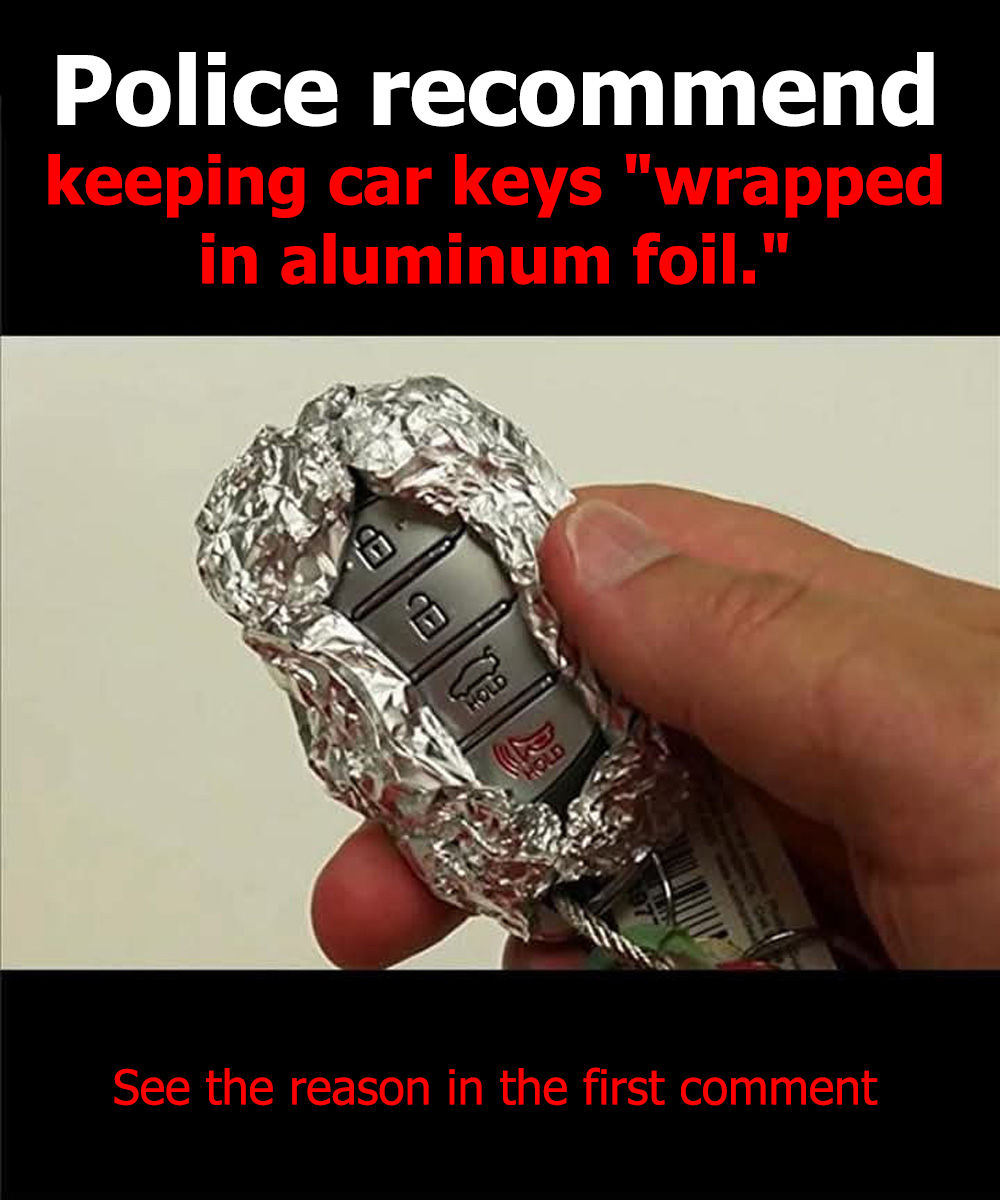Starting today, it’s worth taking a small but smart step to protect your car by simply wrapping your key fob in aluminum foil. While it may sound like something out of a spy movie or an old-school security hack, experts are warning that this low-tech solution can be surprisingly effective against a growing threat involving modern car theft.

Most car keys today use a wireless signal to communicate with your vehicle, allowing you to unlock the doors or start the engine without physically inserting the key. As convenient as this technology is, it also creates a vulnerability that criminals are now exploiting more and more. These key fobs continuously emit a signal, even when they’re just sitting in your bag, on your kitchen counter, or in your coat pocket. Thieves equipped with inexpensive devices can capture that signal and use it to replicate your key’s code.
Once they have it, they can walk right up to your car, unlock it, and even drive away—without ever touching your actual key. So how can you stop this from happening? The easiest method, according to cybersecurity experts, is to wrap your key fob in aluminum foil when it’s not in use. Aluminum foil acts as a barrier that blocks electromagnetic signals from escaping or being intercepted. It essentially creates a shield, or a DIY version of what’s known as a Faraday cage, which can prevent electronic communication between your key and a would-be thief’s scanning device. While this isn’t a perfect or high-tech fix, it’s cheap, accessible, and effective. For those looking for a more durable and stylish option, there are Faraday bags that can be purchased online for just a few dollars.
These bags are specially designed to block all outgoing and incoming signals, making them a great alternative to wrapping your key in foil. Moshe Shlisel, the CEO of GuardKnox Cyber Technologies and a former developer of missile defense systems for the Israeli Air Force, explained this in a very relatable way during an interview with BBC Mundo. He described the car key’s signal like a song that’s constantly playing between the key and the car. When your car “hears” that song, it knows to unlock or start. If someone else learns the song—by recording or replicating it—they can trick your car into opening and starting without the original key.
What aluminum foil or a Faraday pouch does is mute that song, so no one else can hear or record it. Although some may find it a bit outdated or even laughable that in the 21st century we’re being told to use aluminum foil to protect our cars, Shlisel says this kind of theft is happening more often than people realize.
While he admits he doesn’t have exact figures, he emphasizes that these attacks are increasing, mainly because the tools needed to pull them off are widely available and easy to use. You don’t have to be a hacker to do it. In fact, many of the necessary devices can be found on online marketplaces, and there are even step-by-step tutorials on YouTube that walk people through how to intercept key signals. That’s part of what makes this form of theft so alarming—it’s not limited to professional criminals. Everyday people with a little tech savvy can learn how to do it. Fortunately, the automotive industry is aware of the risks and is actively working on long-term solutions. Manufacturers are developing ways to improve the security between car keys and their vehicles to prevent these signals from being copied or cloned. Until those advancements are rolled out on a large scale, it’s up to consumers to take precautions. Simple habits like storing your key in a signal-blocking pouch or wrapping it in aluminum foil can offer added peace of mind. In today’s digital world, where convenience often comes with unexpected risks, doing something as basic as wrapping your key in foil might be the smartest move you make to protect your vehicle. It’s easy, affordable, and could save you from a lot of stress and financial loss.





